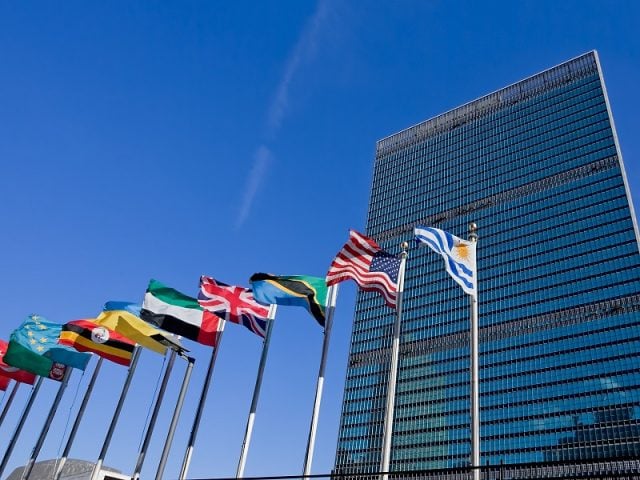
By Julio Gil-Pulgar,
Colossal challenges await Antonio Guterres, the newly appointed United Nations Secretary-General. He must ensure the UN works toward eradicating poverty and achieving world peace, human development, social equity, and justice. Additionally, Guterres needs to promote freedom of Internet access, financial inclusion for billions of people, and the establishment of a technologically-driven universal currency.
The UN and the Fourth Industrial Revolution
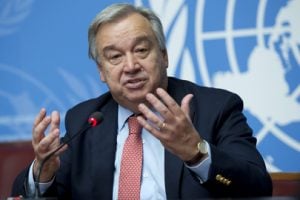
As UN Secretary-General, Guterres will have to confront formidable pressing global issues. These include poverty, terrorism, human rights violations, wars, and a massive refugee crisis.
Additionally, unlike his predecessors, Guterres will also face new challenges. The challenges relate to the impact of the Fourth Industrial Revolution on the global digital economy.
Guterres will need to aggressively promote the spread of information and global interconnectivity, and foster digital equality. Also, he will need to develop and implement strategies to facilitate financial inclusion to billions of unbanked people.
The UN Must Protect and Promote Internet Expansion
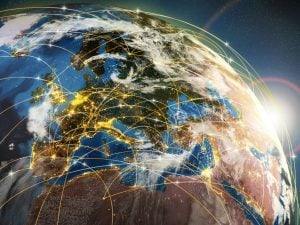 The Internet is increasingly falling within the UN’s sphere of influence. For example, if the U.S. neglects its protection of the Internet, the UN might have to take over this responsibility, according to The Wall Street Journal.
The Internet is increasingly falling within the UN’s sphere of influence. For example, if the U.S. neglects its protection of the Internet, the UN might have to take over this responsibility, according to The Wall Street Journal.
As the UN General Assembly mandates, Guterres will have to promote the expansion of the Internet. This also involves protecting the basic human right to Internet access and freedom of online expression, and the right to data privacy.
Guterres will also have to ensure that the UN Human Rights Resolution, which condemns countries that purposely disrupt or prevent their people from accessing the Internet, achieves its objectives.
Bitcoin is a Technology-Driven World Currency
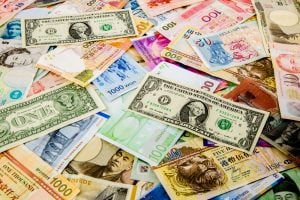 The implications of emerging new economic models should also be of great concern to Secretary-General Guterres. The new economy, driven by the Fourth Industrial Revolution, demands that an open, borderless, payment system be in place.
The implications of emerging new economic models should also be of great concern to Secretary-General Guterres. The new economy, driven by the Fourth Industrial Revolution, demands that an open, borderless, payment system be in place.
Presently, the sheer number of fiat currencies complicates and increases the cost of global financial transactions. In fact, the UN recognizes 180 currencies as legal tender. Meanwhile, the present fiat monetary system is becoming obsolete. The UN has also been studying the possibility of introducing a technologically-driven universal currency.
Actually, for the past few years, the United Nations has recommended replacing the U.S. dollar as the world’s reserve currency.
In this regard, Guterres’ experience with the implications and tribulations of dealing with fiat currencies is welcome. As the Prime Minister of Portugal from 1995 to 2002, he tenaciously fought for his country’s membership in the single currency Eurozone. Thus, Portugal joined the Eurozone in 1999.
However, by 2007, the majority of Portuguese people wanted to go back to the old currency, the escudo. As The Portugal News Line reported, “60 percent of Portuguese would readily convert their euros back to escudos if they were given the choice.”
UN Wants Communications Technology to Transform the World
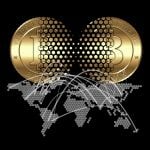 United Nations leadership is already aware that Bitcoin and innovation are key to transforming the world and bettering peoples’ lives.
United Nations leadership is already aware that Bitcoin and innovation are key to transforming the world and bettering peoples’ lives.
Specifically, the UN declares, “The spread of information and communications technology and global interconnectedness has great potential to accelerate human progress, to bridge the digital divide and to develop knowledge societies, as does scientific and technological innovation across areas as diverse as medicine and energy.”
UN Agencies Also on Board
Consequently, UN agencies are already delving into innovative technologies, such as Bitcoin and its blockchain technology, as allies to help accomplish the organization’s altruistic objectives.
UNICEF is recruiting software developers with blockchain expertise to work on developing products that solve problems in developing countries. Specifically, the position description seeks developers “to research emerging technologies like blockchain and smart contracts, then prototype potential solutions for identity, cash remittance, and decentralized autonomous organizations.” (You can apply for this job here.)
Furthermore, in February 2016, UNICEF invited technology start-ups to apply for funds in support of exploring the virtues of Bitcoin’s blockchain technology to develop solutions to improve the lives of the world’s most vulnerable children.
The United Nations Development Programme (UNDP), on the other hand, is working through its UNDP Alternative Financial Lab to design a solution for remittances over the blockchain.
Secretary-General Guterres, whom many observers consider a modernizer, will need to champion the use of technological innovations. This naturally includes one of the biggest inventions ever — Bitcoin and its blockchain technology. These could fulfill the United Nations mandate and thus contribute to transforming human civilization for the better.
